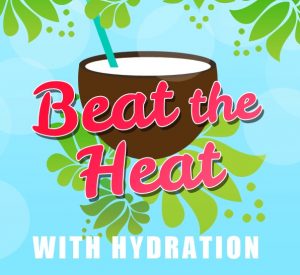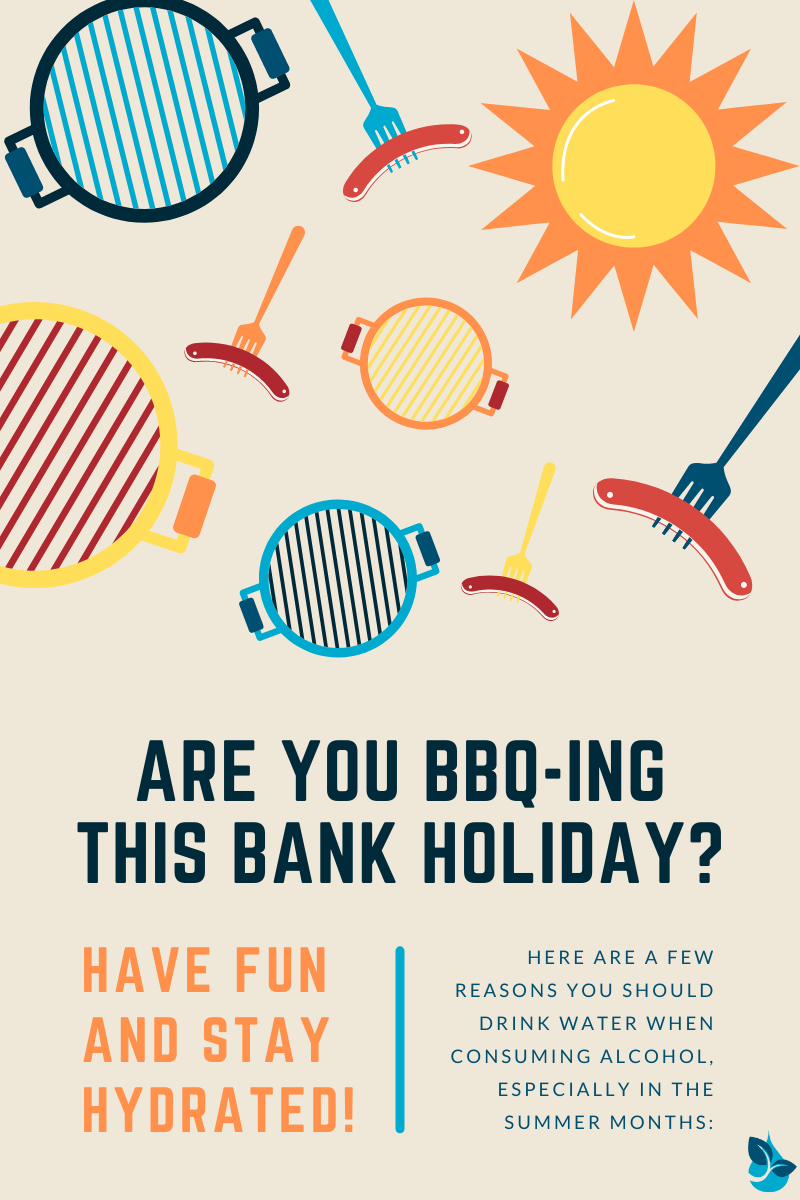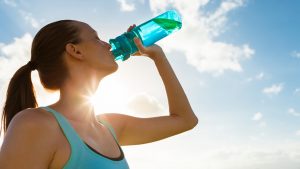How to Hydrate this Bank Holiday Weekend
Another heatwave is coming this week – so say! This weekend will see a lot of socialising with family and friends, especially in the good weather, with picnics and BBQs.
Summer is a wonderful time to be outside gardening, walking, socialising, and enjoying the sunshine while it’s here. Just be sure to take on board plenty of fluids – on a hot day dehydration can sneak up on you faster than you might expect.
Try to avoid consuming high amounts of alcohol in the sunshine. It causes your body to remove fluids from your blood through your renal system, which includes the kidneys, ureters, and bladder, at a much quicker rate than other liquids. If you don't drink enough water with alcohol, you can become dehydrated quickly.

Drink water before, during & after drinking alcohol
Try drinking a few glasses of water before your start drinking alcohol. Or maybe try to alternate alcoholic drinks with a glass of water while socialising. Have a big drink of water before you go to bed, as it will significantly help to counteract the dehydration effect from alcohol.
If you are going to have a heavy session, it is also a good idea to have a meal before you start drinking. By consuming food between drinks, it will help to slow down the absorption of alcohol. Good nutrition helps to support your liver function, which will play a crucial role when drinking alcohol.
Being thirsty is an early sign that you are already slightly dehydrated. The colour of your wee is a good indicator of whether you’re getting enough water. Urine that is nearly clear or pale yellow means your body has the fluid that it needs. As urine becomes darker the body is becoming dehydrated and needs more water.
Hydration works best as a daily habit. Getting enough water every day means your organs have what they need to function properly. Eight, eight-ounce glasses of water a day is enough for most people; which is around 2 – 3 litres. If you’re sweating a lot because of the heat, you will need more.
Summer Heat & Sweating
When it’s hot, your body pumps a higher volume of blood to your skin causing you to sweat. As the sweat evaporates off the skin, it helps cool you. This works best when the air is cooler than your body temperature, 98.6° F on average. If your body is struggling to cool off, your core temperature may rise, and your heart will have to work harder as it pumps blood to meet the additional demands of stimulating a sweat response.
Sweating is essential because it keeps your body from overheating, which is very hard on your heart and other organs. So, staying hydrated is one of the best ways you can support your body and help it cool off.
When the heat is extreme, you may sweat more and need to drink more to offset lost fluids. Find other ways to cool yourself off. A heat advisory is a great excuse to head for the river or sit in air conditioning with a cool drink.
Alcoholic, caffeinated and high sugar beverages are not a good choice if you’re dehydrated as these drinks can actually dehydrate your body further. Stick to plain, carbonated and flavoured fruity water when the heat is high.
Mild dehydration can leave you feeling dizzy, tired or nauseous. In this early stage the condition is very easy to remedy — simply drink a glass of water. Severe dehydration symptoms include lack of passing urine or dark urine, rapid heartbeat, dry skin, sunken eyes, confusion and fever or chills. Seek medical advice if you have any of these symptoms. Special attention and care are required for older people and young children in the heat.
Tips to Stay Hydrated
To keep yourself hydrated this bank holiday weekend, here are some great tips:
- Drink eight, eight-ounce glasses of water a day, ie 2 -3 litres - more if it’s hot or you’re sweating a lot. Invest in a reusable water bottle to keep at your desk, in your car to help you drink more, and keep track of how much you’re taking.
- Eat foods with a high-water content. Fruits and vegetables such as watermelon, strawberries, peaches, lettuce, tomato and cucumber can help you get more fluids.
- Don’t overexert in the heat. As temperatures rise, take a break from outdoor tasks and exercise and rest in the shade or inside.
- Keep drinking, even if you don’t feel well. Sickness and diarrhoea are both big risk factors for dehydration. A summer cold, sore throat or other minor illness can also keep you from drinking regularly. Taking tiny sips can be helpful when you’re feeling off colour.
A reusable bottle saves buying single use plastic and adding to landfill, so is good for you and the health of the planet. Whatever your plans enjoy the rest of the summer holidays and the promised sunshine!





